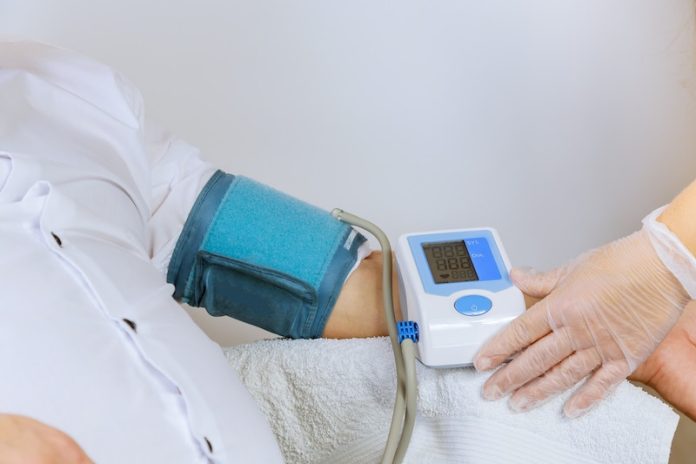
Hypertension, commonly known as high blood pressure, affects nearly half of all adults in the United States. Unfortunately, only a quarter of those with this condition have it under control.
High blood pressure is a serious health concern as it can lead to heart attacks, strokes, kidney disease, vision loss, and more. It is also associated with cognitive decline and dementia in later life.
Blood Pressure Measurement Variability
Researchers at Yale conducted a study to examine how blood pressure measurements taken during medical office visits can vary significantly between appointments.
This variability in blood pressure readings presents a significant challenge when determining the effectiveness of hypertension treatment.
The study included over 7.7 million blood pressure measurements from 537,218 adults treated at the Yale New Haven Health System, with an average age of 53.
The findings revealed substantial variations in blood pressure measurements between consecutive visits, with an average difference of approximately 12 mmHg.
Individuals with blood pressure within the normal range experienced an average variation of 6.3 mmHg between two consecutive visits.
However, for those with extremely high blood pressure (above 180 mmHg systolic), the variation was much greater, averaging 32.3 mmHg.
Challenges in Monitoring and Treatment
One of the key challenges highlighted by the study is the uncertainty in assessing the effectiveness of hypertension treatment.
If a person with high blood pressure is prescribed medication to lower their systolic levels by 10 mmHg, the study found that they would see a reduction of 5 mmHg or less at the next visit in 37% of cases, and no reduction at all in 25% of cases.
This means that it may take up to four follow-up visits to be 80% certain that a patient’s systolic blood pressure has actually been lowered.
Improving Blood Pressure Measurement Accuracy
To obtain accurate blood pressure measurements, the researchers provided some essential tips:
Preparation: Avoid exercise, smoking, or caffeine consumption within 30 minutes before measuring your blood pressure. Empty your bladder and sit quietly for at least five minutes.
Proper Positioning: Ensure the arm used for measurement is on a flat surface, like a table, with the upper arm at heart level. Sit with your back straight and supported, and your feet flat on the floor.
Multiple Measurements: Take at least two blood pressure measurements, one minute apart, in the morning before taking medications or having breakfast, and again in the evening before supper.
Support for Home Blood Pressure Monitoring
Given the significant variability in blood pressure measurements, these findings provide further support for guidelines that encourage individuals to monitor their blood pressure at home.
Home monitoring can offer a more accurate and comprehensive picture of one’s blood pressure trends over time.
Additional Insights into Blood Pressure Management
For those interested in managing their blood pressure, the study suggests exploring the potential benefits of probiotics and certain plant-based foods.
Probiotics may help reduce high blood pressure, while specific plant-based foods could be advantageous for those with hypertension.
In conclusion, managing high blood pressure is a critical aspect of overall health. Understanding the variability in blood pressure measurements and employing proper measurement techniques are essential steps toward effective hypertension treatment.
By taking control of blood pressure through accurate monitoring and lifestyle adjustments, individuals can reduce their risk of severe health complications, including heart attacks, strokes, and cognitive decline.
If you care about blood pressure, please read studies about blood pressure drug that may increase risk of sudden cardiac arrest, and these teas could help reduce high blood pressure.
For more information about health, please see recent studies about nutrient that could strongly lower high blood pressure, and results showing this novel antioxidant may help reverse blood vessels aging by 20 years.
Follow us on Twitter for more articles about this topic.
Copyright © 2023 Knowridge Science Report. All rights reserved.



